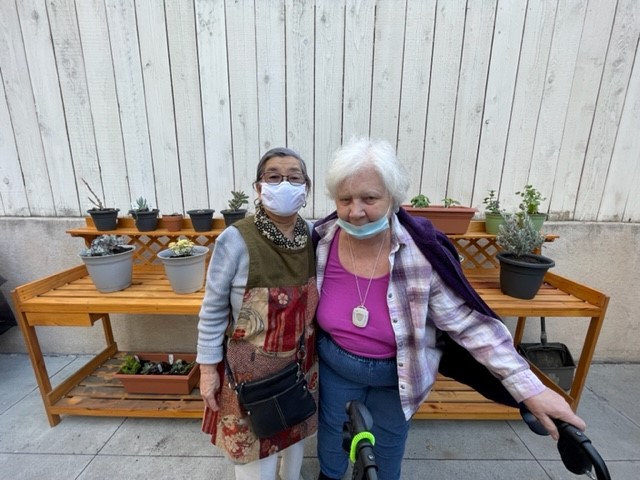In step with their proprietary approach to physical and mental activity known as Whole Brain Fitness, residents and chefs at Belmont Village Senior Living communities are growing, harvesting, and preparing fresh herbs, vegetables, and fruits for healthy, delicious meals using a variety of fresh ingredients. As a communal and interactive activity for seniors, gardening promotes socialization and mental health while engaging residents in physical exercise, positively impacting the domains which are integral to a senior’s overall cognitive ability.
“Not only does it taste good and look good, but fresh farm-to-table produce means our residents are reaping greater nutritional benefits,” explains Eric Lindholm, Vice President of Food Services at Belmont Village Senior Living. “Plus, the rotating selection of produce used in our meals means a variety of new menu items to try out. When we introduce a new fruit or vegetable, we highlight the nutritional benefits, color, different cooking techniques, and how these techniques can change the ingredient’s flavor and nutritional value.”
A recent study highlighted the relationship between senior gardening as a community activity and how it promotes psychosocial and physical well-being. The study found that gardening activities and involvement in a gardening group led to seniors experiencing therapeutic benefits such as enhanced self-esteem, participating in productive endeavors, and social engagement – which is key to improving one’s positive self-perceptions. Older adults who actively engage with gardening, whether leisurely or in moderate to heavy amounts, see benefits from increased physical activity, which can prevent osteoporosis and reduce the risk of some cancers, Type 2 diabetes, depression, and heart disease.
Belmont Village’s nutrition programs offer farm-to-table meals grounded in health-forward concepts. “Our farm-to-table meals and health forward menu concepts help to harness the medicinal benefits of foods,” says Chef Paul Haas of Belmont Village Albany. “This is why we use only the freshest ingredients to ensure that residents are receiving quality, beneficial nutrition while sharing in the experience of growing and harvesting foods used in their daily meals.”
Residents in the Sunnyvale, Albany, Thousand Oaks and San Jose communities are able to participate in gardening and nutrition-centered activities – with each of them bringing their own flavor and “spin” to their recipes, such as:
- Belmont Village Sunnyvale residents grow cauliflower, tomatoes, parsley, chives, dill, edible flowers, and green onions, which are then harvested by residents and incorporated into meals by Chef Ellis Chavez.
- Belmont Village Albany established a gardening program after the local outdoor public garden closed during the pandemic. The space, now called the “Garden Terrace,” is managed entirely by residents and is filled with wildflowers, herbs, and vegetables for the community to enjoy. With a new beehive addition, residents are hopeful they’ll see new pollinators in their lovely space soon.
- Memory care residents at Belmont Village’s Thousand Oaks community are planting peppers, eggplant, blueberries, strawberries, and tomatoes which are used to create farm-to-table-style dishes with Chef Kevin Schott as an educational and engaging activity.
- The San Jose community has a “Belmont Blooms” group as part of its Circle of Friends programming. The group enjoys outings to Yamagami’s Garden Center in Cupertino, where residents select a variety of succulents, indoor plants, and vegetables to grow. Residents then conduct research about caring for the plants alongside chef Tony Amador Avelar.
“Belmont Village prides itself on its unique collaborations with academic institutions to improve our programming, such as the University of Houston’s Conrad N. Hilton College of Hotel and Restaurant Management, which helped guide the development of our senior dining and nutrition programs,” says Patricia Will, Founder and CEO of Belmont Village Senior Living. “By combining the benefits of social connection from an engaging activity like gardening and the utilization of fresh fruits, vegetables, herbs and spices in daily meals, we can further support wellness in aging for our residents.”
